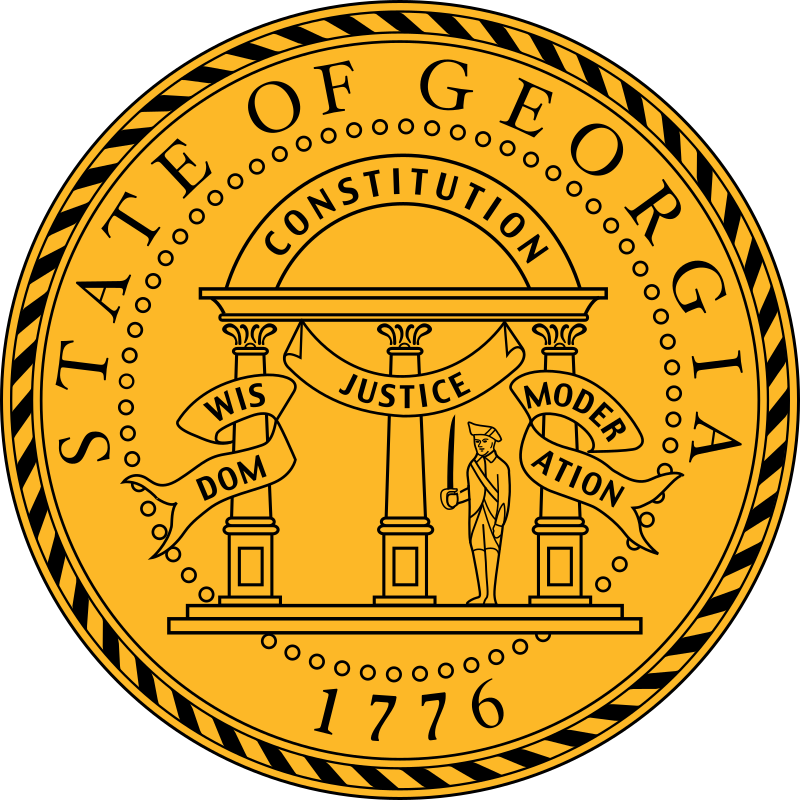Tag: georgia
-
Incumbent David Scott (D) defeated six challengers in the Democratic primary in Georgia’s 13th Congressional District

Incumbent David Scott (D) defeated six challengers in the Democratic primary in Georgia’s 13th Congressional District on May 21, 2024. Scott and Marcus Flowers (D) led in local media attention ahead of the primary. Scott won with 57.8% of the vote, followed by Mark Baker (D) with 11.6% and Flowers with 9.9%. First elected in…
-
Georgia Governor Brian Kemp (R) signs legislation making significant changes to state election laws

States have adopted 50 new election laws since the beginning of May. Nearly half of these bills come from Georgia, where Gov. Brian Kemp (R) has signed 24 election-related bills, including several that have garnered national attention for how they change the state’s voting laws. One of these bills was SB 189, an omnibus election bill that changed several areas of…
-
Voters in northeastern Gwinnett County, Georgia, to vote on ballot measure creating a new city, Mulberry

In northeastern Gwinnett County, Georgia, voters will decide on a ballot measure on May 21 to create a new city called Mulberry. Mulberry would have around 41,245 residents. The Georgia State Legislature referred the measure to the ballot in a vote that divided Republicans and Democrats. The Georgia State Senate voted 30-15 to pass the…
-
All candidates for Georgia House of Representatives District 60 Democratic primary complete Ballotpedia’s Candidate Connection survey

Both of the candidates running in the May 21, 2024, Democratic primary election for Georgia House of Representatives District 60 — Incumbent Sheila Jones (D) and Diane Clair (D) — completed Ballotpedia’s Candidate Connection survey. These survey responses allow voters to hear directly from candidates about what motivates them to run for office. Here are the candidates’ responses to…
-
All candidates for Georgia House of Representatives District 98 Democratic primary complete Ballotpedia’s Candidate Connection survey

Both of the candidates running in the May 21, 2024, Democratic primary election for Georgia House of Representatives District 98 — Incumbent Marvin Lim (D) and Jorge Granados (D) — completed Ballotpedia’s Candidate Connection survey. These survey responses allow voters to hear directly from candidates about what motivates them to run for office. Here are the candidates’…
-
All candidates for U.S. House Georgia District 10 Democratic primary complete Ballotpedia’s Candidate Connection survey

Both of the candidates running in the May 21, 2024, Democratic primary election for Georgia’s 10th Congressional District — Lexy Doherty (D) and Jessica Fore (D) — completed Ballotpedia’s Candidate Connection survey. These survey responses allow voters to hear directly from candidates about what motivates them to run for office. Here are the candidates’ responses to the…
-
Seven candidates are running in the Democratic primary in Georgia’s 13th Congressional District

Seven candidates are running in the Democratic primary in Georgia’s 13th Congressional District on May 21, 2024. Two lead in local media attention: incumbent Rep. David Scott (D) and Marcus Flowers (D). First elected in 2002, Scott faced primary challenges in 2020 and 2022, winning 52.2% of the vote in 2020 and 65.7% in 2022. Scott’s last primary challenge before 2020…
-
Fewest number of Georgia state legislators retiring this year since 2014

There are 236 state legislative seats up for election this year in Georgia. Across those, 17 incumbents (10 Democrats and seven Republicans) did not file to run for re-election. That’s the fewest number of retirements since 2014. From 2010 to 2022, the average number of retirements per cycle was 28. In 2022, 48 incumbents (23…
-
All candidates for Georgia State Senate District 32 Republican primary complete Ballotpedia’s Candidate Connection survey

Both of the candidates running in the May 21, 2024, Republican primary election for Georgia State Senate District 32 — Incumbent Kay Kirkpatrick (R) and Ben Paul Fremer (R) — completed Ballotpedia’s Candidate Connection survey. These survey responses allow voters to hear directly from candidates about what motivates them to run for office. Here are the candidates’ responses to…
-
Haley campaign outraised Trump campaign in Georgia

Before ending her campaign, Nikki Haley (R) had raised the most money from Georgia of all presidential candidates, taking in $2.6 million since the start of the campaign cycle. Haley raised $906,182 in February. Donald Trump (R) has raised the next most from Georgia, with $2.4 million since the start of the campaign and $239,765…

